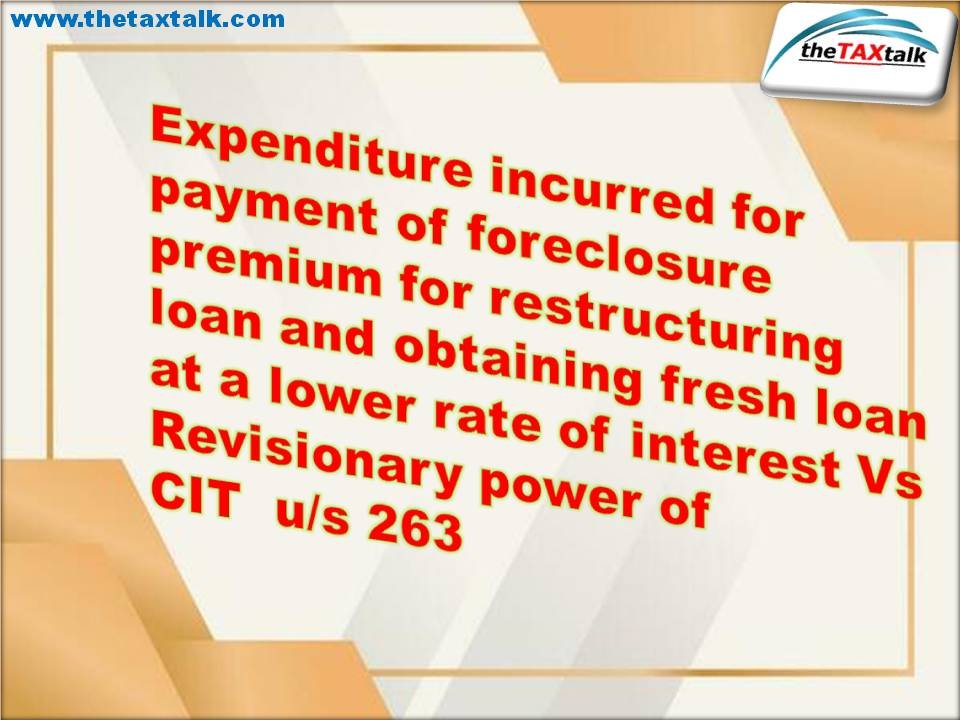![]()
Expenditure incurred for payment of foreclosure premium for restructuring loan and obtaining fresh loan at a lower rate of interest Vs Revisionary power of CIT u/s 263
Recently, an issue before Madras High Court was regarding the Revisionary power of CIT u/s 263 with respect to the expenditure incurred for payment of foreclosure premium for restructuring loan and obtaining fresh loan at a lower rate of interest.
The case detail is as under:
MADRAS HIGH COURT:
M/S. EIH ASSOCIATED HOTELS LIMITED, CHENNAI
VERSUS
COMMISSIONER OF INCOME TAX – I, CHENNAI
No.- T. C. A. No. 1249 of 2010 Dated.- October 28, 2024
Let us have a short overview of the case:
1. It has never been the case of the Revenue that the borrowing was deployed towards purchase of capital asset or purchase / acquisition of a capital asset on that the transaction itself should be viewed as being capital in nature. Such an angle does not find place in either the show-cause notice, order under Section 263 or order of the ITAT.
2. Simply put, the Commissioner of Income-Tax expresses in the order under Section 263, the view that ‘the question of payment of interest will arise only when any amount is due to the bank. Here, when the loan has been squared up the question of payment of interest does not arise at all. Further, the pre-closure charges would a percentage on loan amount sanctioned earlier by HSBC and not additional interest’. According to him, the question of payment of interest would not arise in a case where the loan has been pre-closed.
3. There is no other reason on the basis of which he felt compelled to reverse the grant of claim under Section 37. These decisions are thus of no avail to the revenue.
4. The foreclosure of the loan to contain the exorbitant charges to be paid, stem from a business decision of the assessee and the commercial expediency that governs its business dealings.
5. In Sassoon J. David and Co. Pvt Limited (supra), the Supreme Court states succinctly that ‘ordinarily it is for the assessing authority to decide whether any expenditure should be incurred in the course of his or its business. Such an expenditure may be incurred voluntarily and without any interest and if it is incurred for promoting the business and to earn profits, the assessee can claim deduction under Section 10(2) (xv) of the Act even though there was no compelling necessity income such expenditure.’
6. Hence it is for an assessee to decide what would be the best way of going about its business and maximizing its profit subject to such acts being within the four corners of the law. Incidentally, the decision of the Tribunal in Overseas Sanmar Financial Limited (supra) has not been challenged by the Income-Tax Department and has attained finality.
7. One last point, the Commissioner of Income-Tax has distinguished the decision in the case of Gujarat Guardian by stating that the original loan as well as restructured loan had been availed by the assessee from UTI only whereas in the present case, the original loan had been taken from HSBC and restructured with UTI Bank with lower rates. We find this distinction irrelevant.
The copy of the order is as under:


